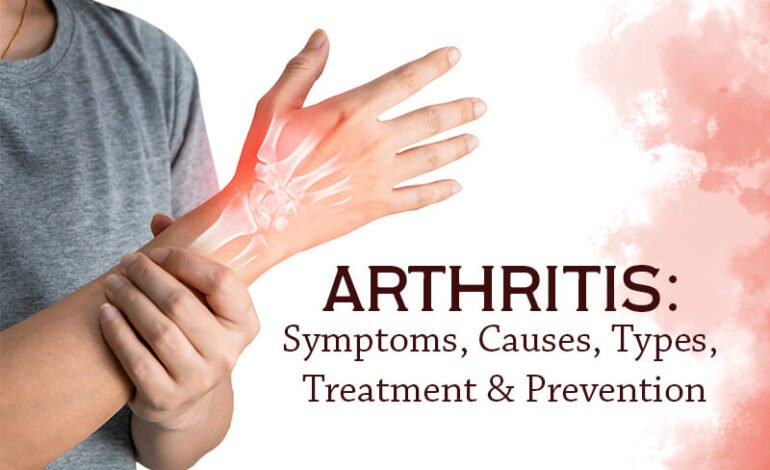
Types of Cancers, how can we prevent it
What is Cancer?
Cancer is a group of diseases characterized by the uncontrolled growth and spread of abnormal cells in the body. Normally, cells grow and divide in an orderly way to form new cells as needed. However, cancer occurs when this process goes awry, and the abnormal cells begin to grow uncontrollably, often forming tumors. In some cases, these cells can spread (metastasize) to other parts of the body via the blood or lymphatic system.
Types of Cancer:
Cancer can develop in any part of the body. The types of cancer are typically named after the organ or type of cell where they begin. Some of the major types of cancer include:
- Carcinomas: Cancers that begin in the skin or tissues that line or cover internal organs. They are the most common type of cancer.
- Lung cancer
- Breast cancer
- Prostate cancer
- Colorectal cancer (Colon cancer)
- Sarcomas: Cancers that begin in the bones, muscles, fat, and other connective tissues.
- Leukemia: Cancers that begin in the blood-forming tissues like the bone marrow and affect the blood and bone marrow. It leads to an increased number of abnormal white blood cells.
- Acute leukemia
- Chronic leukemia
- Lymphomas: Cancers that begin in the lymphatic system (part of the immune system). The two main types are:
- Hodgkin lymphoma
- Non-Hodgkin lymphoma
- Melanoma: A type of cancer that begins in the melanocytes (cells that produce pigment) of the skin. It’s one of the deadliest forms of skin cancer.
- Brain and Spinal Cord Cancers: Cancers that begin in the brain or spinal cord, such as gliomas, astrocytomas, and medulloblastomas.
- Endometrial (Uterine) Cancer: Cancer that begins in the lining of the uterus.
- Kidney Cancer: Begins in the kidneys, the organs responsible for filtering waste from the blood.
- Pancreatic Cancer: Begins in the pancreas, an organ that helps digest food and regulate blood sugar.
- Ovarian Cancer: Begins in the ovaries, the female reproductive organs that produce eggs.
- Esophageal Cancer: Cancer that begins in the esophagus, the tube that carries food from the mouth to the stomach.
- Liver Cancer: Cancer that begins in the liver, an organ that filters toxins and produces bile.
Prevention of Cancer:
While not all cancers can be prevented, many lifestyle changes can significantly reduce the risk of developing certain types of cancer. Here are some key ways to lower your risk:
- Avoid Tobacco: Smoking and the use of tobacco products are the leading cause of lung cancer and are also linked to cancers of the mouth, throat, pancreas, bladder, and more. Quitting smoking or not using tobacco products is one of the most important cancer prevention strategies.
- Healthy Diet:
- Eat a variety of fruits and vegetables: These foods are rich in antioxidants and nutrients that can protect your cells from damage.
- Limit processed and red meats: Diets high in red meats and processed meats (like bacon and sausages) have been linked to colorectal cancer.
- Maintain a healthy weight: Obesity is a known risk factor for various cancers, including breast, colorectal, and liver cancers.
- Drink alcohol in moderation: Excessive alcohol consumption is a risk factor for several types of cancer, including liver, breast, and colorectal cancer.
- Exercise Regularly: Regular physical activity can lower the risk of several cancers, including breast, colon, and endometrial cancer. Aim for at least 150 minutes of moderate exercise or 75 minutes of vigorous exercise per week.
- Protect Your Skin from Sun Exposure:
- Use sunscreen: Protect your skin from harmful UV rays by wearing sunscreen with at least SPF 30, even on cloudy days.
- Avoid tanning beds: They increase the risk of skin cancer, especially melanoma.
- Wear protective clothing and seek shade during the hottest part of the day (10 a.m. to 4 p.m.).
- Get Vaccinated: Some cancers are linked to viruses that can be prevented by vaccines.
- Human papillomavirus (HPV) vaccine: Protects against HPV, which is linked to several cancers, including cervical cancer, anal cancer, and throat cancer.
- Hepatitis B vaccine: Reduces the risk of liver cancer.
- Regular Screenings: Early detection can catch certain types of cancer in their early, more treatable stages. Common cancer screenings include:
- Mammograms for breast cancer
- Pap smears for cervical cancer
- Colonoscopy for colorectal cancer
- Prostate exams for prostate cancer
- Skin checks for skin cancer
- Lung cancer screenings for high-risk individuals (e.g., long-term smokers)
- Avoid Environmental Toxins: Exposure to certain chemicals, such as asbestos, benzene, or some industrial chemicals, can increase cancer risk. Try to limit exposure to known carcinogens in your environment.
- Manage Stress: Chronic stress can affect your overall health and may influence factors that contribute to cancer, such as weakened immune function, unhealthy habits, or poor lifestyle choices. Engaging in stress-relieving activities, like meditation, yoga, or deep breathing exercises, may help lower cancer risk.
- Know Your Family History: Some cancers are hereditary, so it’s important to be aware of your family medical history. If you have a higher risk due to genetics, you may benefit from more frequent screenings or preventive treatments.
Conclusion:
While cancer can be a devastating disease, many types are preventable or more treatable when caught early. By leading a healthy lifestyle—avoiding tobacco, maintaining a balanced diet, exercising regularly, protecting your skin, and getting vaccinated—you can reduce your risk. Regular screenings and being mindful of environmental and genetic factors are also important in catching cancer early, where treatment options are more effective.



